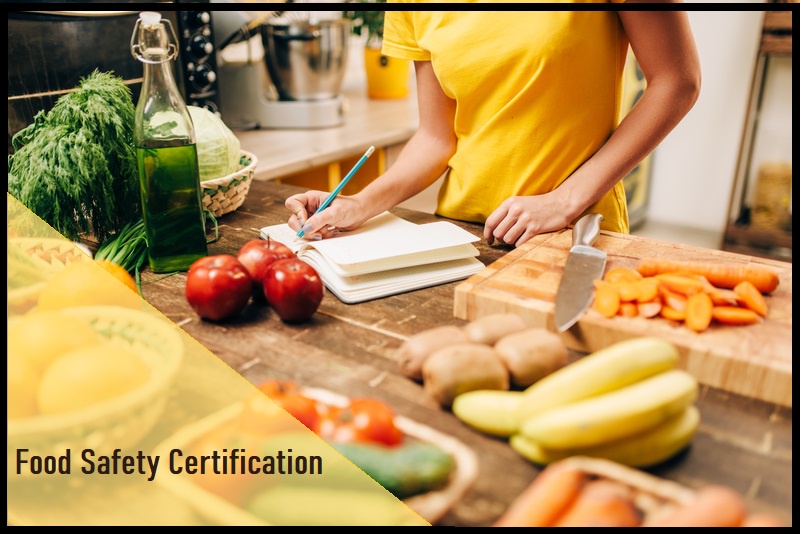Food safety certification is an independent confirmation that the systems, procedures, or products used in the food supply chain adhere to recognized food safety standards. It differs from other conformity-proofing techniques like supplier remarks, laboratory test results, or inspection body reports. Consumer confidence is increased through food safety certification, which is based on the findings of tests, inspections, and audits. A competent third party comprehensively assesses an organization's products and/or system against recognised national and international industry standards.
A food product's certification confirms that it complies with the safety, usability, and/or interchangeability requirements outlined in standards and specifications that augment standards, where applicable and demanded by the market. Organizational certification proves that, for instance, a food producer's quality, environmental, or other management system has complied with the pertinent management system requirements. The methods an organization uses to create its goods or provide its services—rather than the goods or services themselves—are covered by the standards for management systems.
Food safety certification is optional when there are no legal requirements for a business in the food sector to adhere to standards. In these situations, a business may have its justifications for seeking certification of conformity to a given standard, such as an internal product requirement or the desire to gain a competitive advantage. Certification for food safety can be seen by consumers as a sign of food quality and safety.
Why Is Food Safety Certification Needed or Wanted by Businesses?
Food sector businesses can effectively meet the standards of a nationally or internationally recognized best practice approach by obtaining food safety certification, which demonstrates to customers and the marketplace, as well as to staff and other stakeholders, that they have done so. Any business can benefit greatly from certification from an unbiased third party because it represents ethical behaviour and corporate responsibility.
Consumers are demanding higher food safety standards throughout the whole global supply chain due to increased knowledge brought on by recent high-profile food recalls. Businesses will have a competitive advantage in the market if they are certified under a certain food safety program.
What are the advantages of a certified food safety management system?
Standards for food safety are increasingly being required for carrying out operations along the entire food supply chain. A completely approved food safety management system has some advantages, such as:
- Consistency: Businesses can consistently produce safe, high-quality food that complies with requirements with the aid of a well-implemented food safety management system.
- Cost efficiencies: By assisting firms in reducing their risk of contamination and waste due to pricey food recalls, a well-functioning food safety management system and well-prepared food safety certification documentswill produce long-term cost reductions.
- Due diligence: A food safety management system aids in establishing that management is properly upholding its legal obligations regarding food safety laws and regulations. In some nations, a successful HACCP plan may be used as a legal defence in cases involving food contamination or food poisoning.
- Consultation: A methodical approach to processes guarantees that staff members and other stakeholders are active in the company and are informed of food safety concerns before they develop into more serious issues.
- Liability: Some insurance providers won't cover food establishments without HACCP programs.
Food farmers, manufacturers/processors, importers/exporters, distributors, retailers, and packagers are all expected to abide by and have certification for food standards created to guarantee that products are safe for consumption in the global food and beverage sector. From the safe production and storage of fresh fruits and vegetables to the packing materials that come into direct or accidental contact with food and beverage items, there are specific food safety standards for everything.
Source: https://foodsafetystandard.wordpress.com/2023/10/13/why-it-is-very-important-to-get-food-safety-certification-in-the-food-industry/


No comments yet